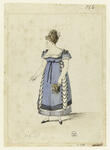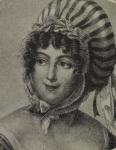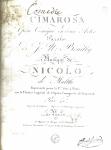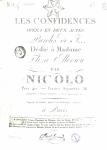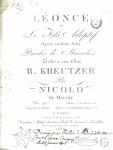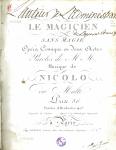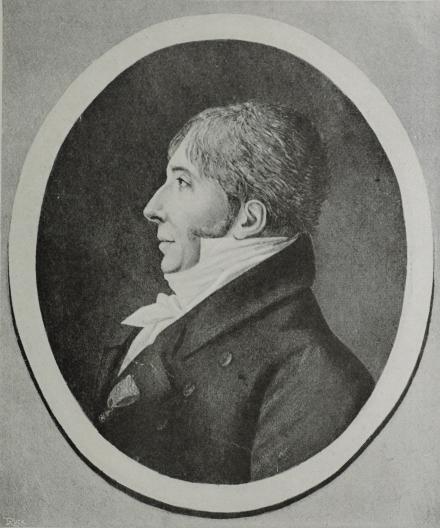
Nicolò ISOUARD
1773 - 1818
Composer, Editor
Nicolas ISOUARD, dit Nicolò
Born in Malta of French origin, Nicolas Isouard initially began a military career, due to pressure from his father, then moved into the world of commerce (which enabled him to found a large publishing house, in 1802, with Cherubini, Méhul, Kreutzer, Rode and Boieldieu), before finally opting for music as a career. He received a musical training from various Italian masters on his numerous travels (Amendola in Palermo, Sala and Guglielmi in Naples), and went on to become choirmaster for the Order of Malta and organist at the Chapel of St John of Jerusalem in Valletta, before moving to Paris in 1799. By this date, he already had numerous religious pieces and several Italian operas under his belt. A friend of Rodolphe Kreutzer, he collaborated with that composer on Le Petit Page ou La Prison d’État (1800) and Flaminius à Corinthe (1801). However, it was the success of Michel-Ange (1802) then L’Intrigue aux fenêtres (1805) which confirmed his status throughout Europe as a composer of opéra comiques, and made him the darling of the Paris salons. Due to the absence of his rival Boieldieu, who was living in Russia at the time, Isouard was able to put his undeniable melodic talent and flair for drama—qualities well served by some extremely good librettos—to good use at the Opéra-Comique. Some of his works, moreover, continued to feature in the repertory until the early 20th century. These include Les Rendez-vous bourgeois (1807), Joconde and Jeannot et Colin (1814), or his masterpiece, Cendrillon (1810), which combines the appeal of a fairytale with great vocal virtuosity.



